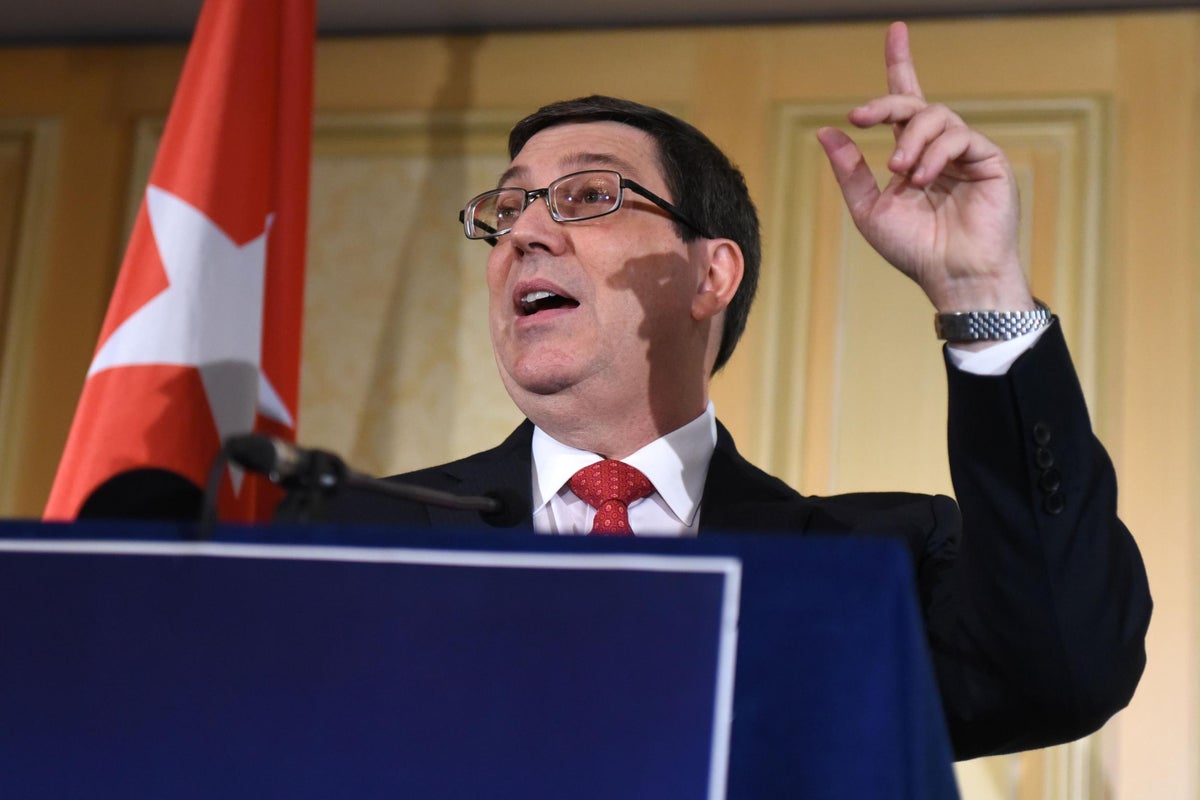
The UN General Assembly has overwhelmingly condemned the U.S. economic embargo on Cuba for a 33rd year. The vote, occurring as Hurricane Melissa tore through the island, softened Washington’s isolation on the long-standing Caribbean issue, though new friction grows around an American military buildup.
The non-binding resolution, reflecting world opinion, passed 165-7, with 12 abstentions. Last year, the vote was 187-2, with the US and Israel casting ‘no’ votes and one abstention. This year, Argentina, Ukraine and Hungary also opposed the measure.
U.S. Ambassador Jeff Bartos said, “The United States government is satisfied to see so many countries send the regime a message that the international community will no longer tolerate” its activities, after expressing concern for Cuba and other countries in the storm’s path.
Cuban Foreign Minister Bruno Rodriguez said the U.S. mounted a pressure campaign to influence the vote. He also said his government had heard from other countries, mainly in Europe, that the State Department was encouraging them to vote against the resolution.
The department did not respond to requests for comment, and Bartos did not address the claim after Rodriguez repeated it Wednesday in the assembly.
U.S. and Cuba face off during UN debate
Before the vote, the U.S. ambassador to the U.N., Mike Waltz, described the annual exercise as “political theater” by Cuba to “cast itself as the victim of aggression while plainly describing itself as ‘the enemy of the United States.”‘
“I would suggest that our member states stop appeasing the regime with their votes and instead use this vote to send the world a message,” Waltz said during debate Tuesday. He said the vote also could signal to Cuba not to “blame all of its economic problems on the United States.”
In a taste of the sour relations between the countries, Rodriguez formally interrupted Waltz’s remarks with a “point of order” to complain that they were “uncivilized, crude and gross.”
“Mr. Waltz, this is the United Nations General Assembly. It is not a Signal chat. Nor is it the House of Representatives,” the Cuban envoy said.
“I am well aware of the location in which we are speaking. And this is also not a communist illegitimate legislature in Havana,” Waltz responded.
Waltz, a former Republican congressman, served as President Donald Trump’s national security adviser earlier this year before unintentionally adding a journalist to a private Signal chat used to discuss sensitive military plans. Waltz has insisted the chat met government cybersecurity standards.
Rodriguez in an interview, said, “We cannot underestimate the importance, the impact, of the powerful message year after year by the General Assembly, which is the most democratic, representative body of the international community.” The resolution, he added, “is not binding, but it is powerful.”
The U.S. objects to the description of the economic restrictions as a blockade.
Hurricane and military action
The vote happened not only as the hurricane raged but as the Trump administration intensified its campaign against drug trafficking in the waters off South America. That military buildup, Rodriguez said Wednesday, is “aggressive, extraordinary and unjustified.”
The moves have strained ties with U.S. allies in the region and opened speculation that Washington aims to oust Venezuelan President Nicolas Maduro. The U.S. has charged him with narcoterrorism, while he has accused the U.S. of trying to destabilize his country and gain control of its oil reserves.
Cuba, meanwhile, has struggled since 2020 with an economic and energy crisis. Its gross domestic product has shrunk, and its 10 million residents have endured blackouts, food shortages and inflation. There have been waves of protests, and hundreds of thousands of Cubans have migrated, many to the United States.
Cuban officials have blamed the economic squeeze on COVID-19 shutdowns, stricter U.S. sanctions and other factors. The island’s communist government says U.S. sanctions cost the country more than $7.5 billion between March 2024 and February 2025, substantially more than the year before.
The embargo was imposed in 1960 after Fidel Castro led a revolution that toppled dictator Fulgencio Batista and nationalized properties belonging to U.S. citizens and corporations.
In 2016, Cuban President Raul Castro and Democratic President Barack Obama officially restored relations. That year, the U.S. abstained, for the first time, on the General Assembly resolution calling for an end to the embargo.
Obama’s successor, Republican Donald Trump, sharply criticized Cuba’s human rights record. The U.S. again voted against the resolution in 2017 and ever since.
Sanctions increased significantly during Trump’s first term, continued under his successor, Democratic President Joe Biden, and were tightened again after Trump returned to office this year.
